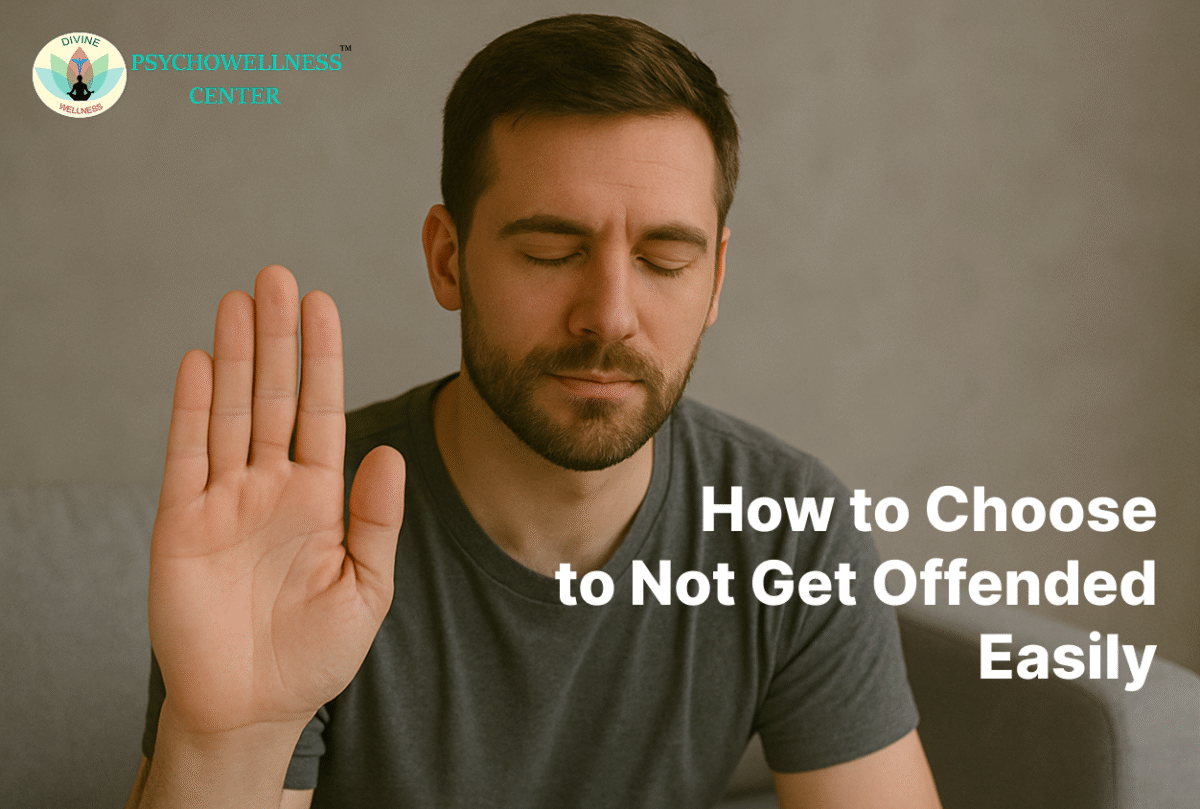In today’s fast-paced, interconnected world, it’s easy to feel personally attacked or offended by others’ words or actions. Whether in personal relationships, on social media, or in professional settings, offences, real or perceived, can lead to stress, anger, and damaged relationships. But what if you could choose not to get offended easily? Cultivating emotional resilience and a balanced perspective allows you to respond with calmness rather than react impulsively. This article explores practical ways to build this mindset and navigate life with greater emotional freedom.
Understanding Why We Get Offended
Before diving into strategies, it’s helpful to understand why offence occurs. Getting offended is a natural emotional response to perceived criticism, disrespect, or injustice. It stems from personal values, self-esteem, or, at times, from unresolved past experiences. When someone challenges what we hold dear, it triggers feelings of threat or vulnerability.
However, not everyone reacts to the same comment or situation with offence. The difference lies in how we interpret and internalise others’ behaviour. Choosing not to get offended is about changing those internal processes, shifting how we perceive and respond.
1. Develop Self-Awareness
The first step to not getting offended easily is cultivating self-awareness. This means recognising your emotional triggers, words, topics, or behaviours that tend to upset you. By identifying these triggers, you can anticipate your reactions and prepare yourself mentally.
Try keeping a journal or reflecting on moments you felt offended. Ask yourself:
- Why did this affect me so deeply?
- Is this about the other person, or is it linked to my insecurities
- Could there be another way to interpret their words or actions?
Self-awareness builds a pause between stimulus and response, allowing you to choose how to react rather than reacting automatically.
2. Practice Emotional Detachment
Many offences arise because we internalise external comments as reflections of our worth.
To practice detachment:
- Remind yourself that others’ opinions are just that—opinions, often influenced by their own biases, moods, or misunderstandings.
- Separate your identity from the criticism or insult.
- Use mindfulness techniques to observe your feelings without judgment, allowing them to pass without control.
- By learning to observe emotions without becoming overwhelmed, you can respond with calmness instead of defensiveness.
3. Build Empathy and Perspective-Taking
Often, getting offended comes from interpreting others’ words with a narrow viewpoint. Expanding your perspective through empathy can lessen offence.
Consider these steps:
- Put yourself in the other person’s shoes. What reasons might they have had for saying that? Are they under stress or dealing with their challenges?
- Ask for clarification instead of assuming malicious intent.
- By understanding others’ viewpoints, you reduce the likelihood of taking offence and foster better communication.
4. Strengthen Your Self-Esteem
People with higher self-esteem are generally less vulnerable to offence because they have a stable sense of self-worth that isn’t easily shaken by others’ remarks.
To enhance self-esteem:
- Practice self-compassion and positive self-talk.
- Celebrate your achievements and qualities.
- Set healthy boundaries that protect you from toxic relationships.
- When you value yourself deeply, negative comments lose their power to hurt.
5. Choose Your Battles Wisely
Not every slight or criticism deserves a reaction. Learning to differentiate between constructive feedback, harmless banter, and truly harmful remarks is crucial.
Ask yourself:
- Is this worth my emotional energy?
- Will responding improve the situation or my well-being?
- Can I let this go and move on?
- Sometimes, the best choice is to simply let go and not take offence. This conserves your emotional energy for what matters.
6. Develop Healthy Communication Skills
Sometimes offences arise due to misunderstandings or poor communication. Enhancing your communication skills can help minimise misunderstandings and prevent taking offence.
Here are some useful strategies:
- Speak using “I” statements to convey your emotions clearly without assigning blame (e.g., “I feel hurt when…” instead of “You always…”).
- Listen actively and with an open mind.
- Clarify before reacting, ask questions if you’re unsure of the intent.
- Practice assertiveness to express your needs calmly and confidently.
- Clear communication fosters respect and minimises misinterpretations.
7. Practice Forgiveness
Holding onto grudges and past offences only prolongs emotional pain. Choosing to forgive, whether or not the other person apologises, frees you from the burden of resentment. It allows you to move on, not by approving the harm done, but by choosing peace over pain.
Conclusion
Choosing not to get offended easily is a powerful way to protect your emotional well-being and strengthen your relationships. It involves developing self-awareness, practising empathy, and building self-confidence, qualities that can be nurtured through approaches like person-centred therapy and motivational interviewing. These therapeutic techniques help you gain emotional detachment, exercise wise judgment, and improve communication, all of which are essential for maintaining healthy boundaries and inner peace.
Working with the best psychologist near me or choosing to take therapy from the best therapist in Delhi at Psychowellness Centre can provide valuable guidance on this journey. Therapy offers a safe space to process emotions, explore forgiveness, and build the emotional resilience needed to respond to life’s challenges with calm rather than offence.
Remember, change doesn’t happen overnight. But each time you choose peace over reactivity, you’re investing in a more joyful, grounded version of yourself.
Contributed by Ms. Tanu Sangwan, Counselling Psychologist
This blog was posted on 27 June 2025
References
- Brown, B. (2018). Dare to Lead: Brave Work. Tough Conversations. Whole Hearts. Random House.
- Neff, K. (2011). Self-Compassion: The Proven Power of Being Kind to Yourself. William Morrow.
- Gilbert, P. (2010). The Compassionate Mind: A New Approach to Life’s Challenges. New Harbinger Publications.
- Kabat-Zinn, J. (2013). Full Catastrophe Living: Using the Wisdom of Your Body and Mind to Face Stress, Pain, and Illness. Bantam Books.

